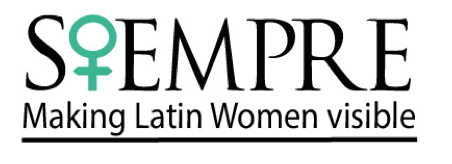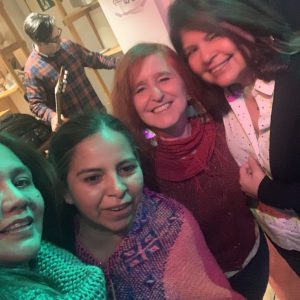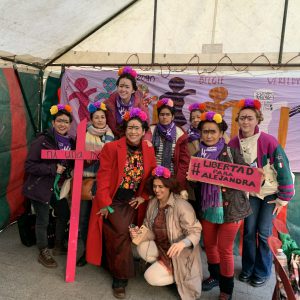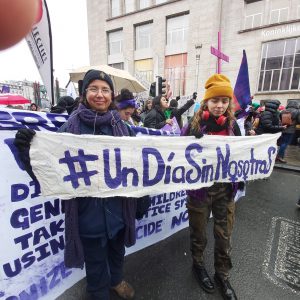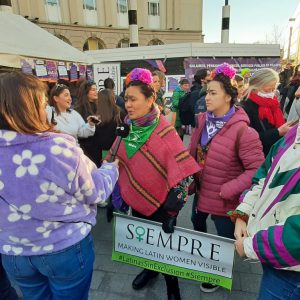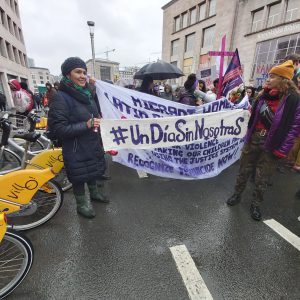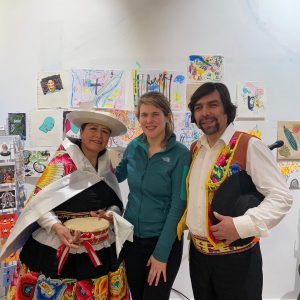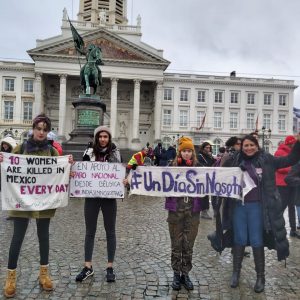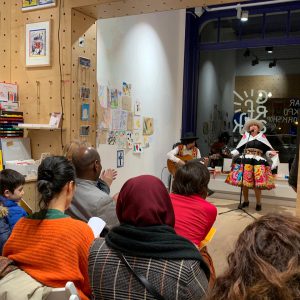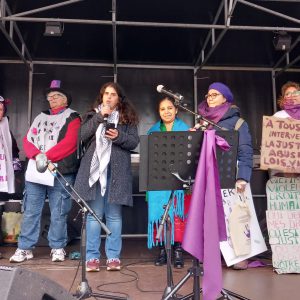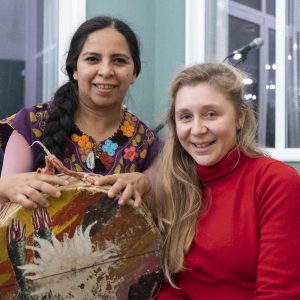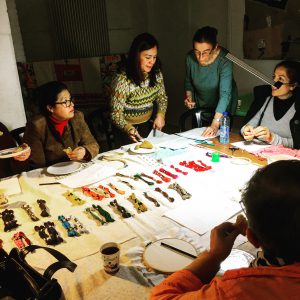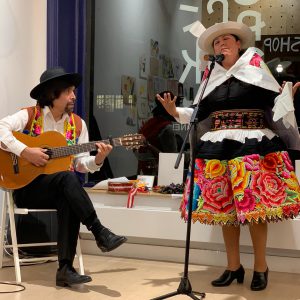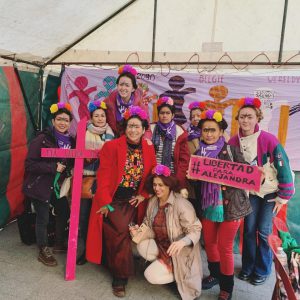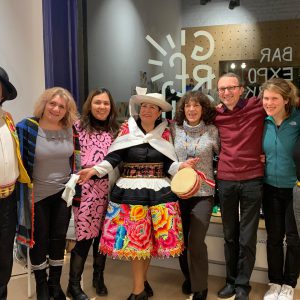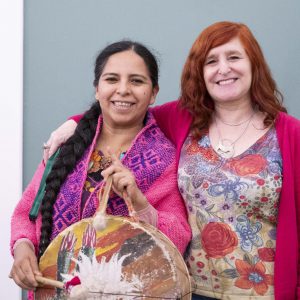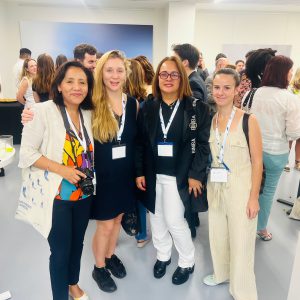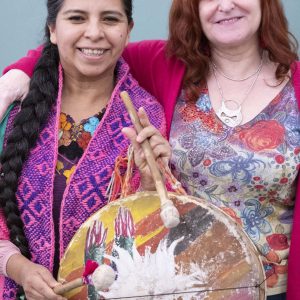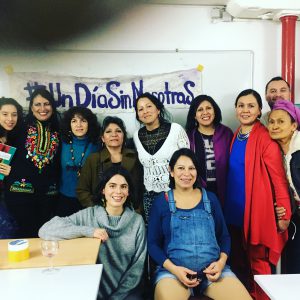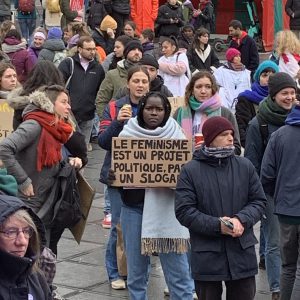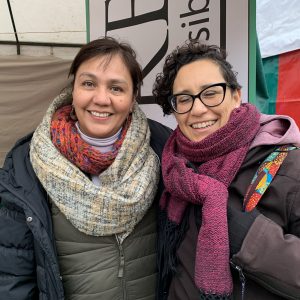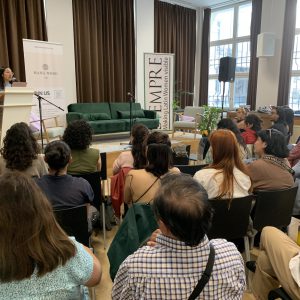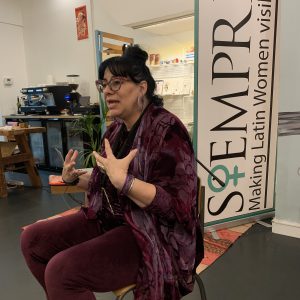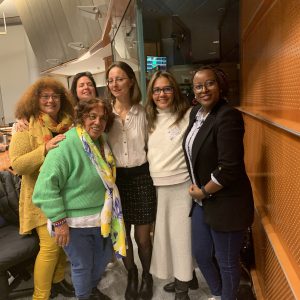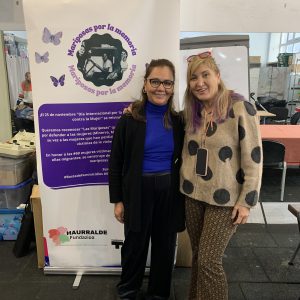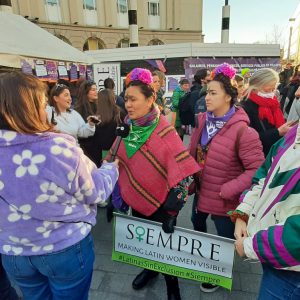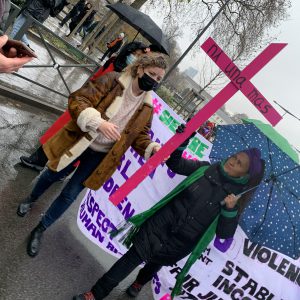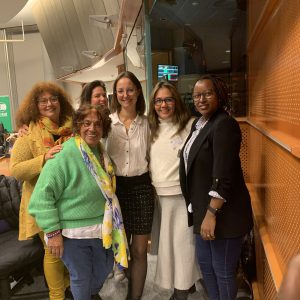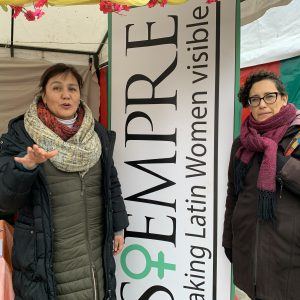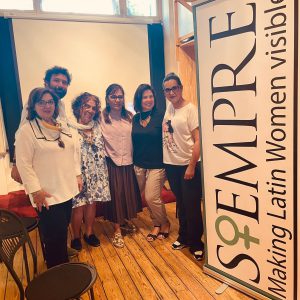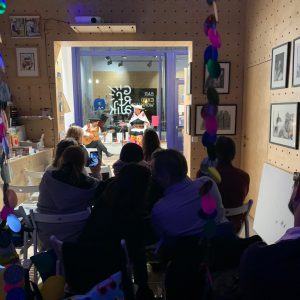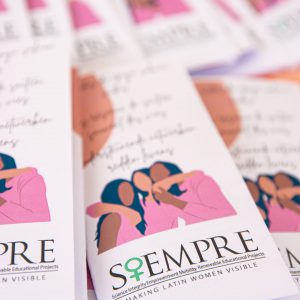OUR Movement

Gathered under the same paths, we are living among obstacles and in a constant search for solutions, a struggle becomes many and they have united us to build a future, not to be lost, for which we want and for a dignified daily life. Conscience and questioning have united us in sharing and preserving our free lives, safeguarding healthy relationships.
We have sat down to dialogue to find answers, find and think alternatives, build sorority and exchange ideas, plans, strategies. All these motivations coincide not only in one place: they expose us to similar problems on other continents: in equal risk, inequity and lack of justice, all these expressions of violence.
In action from the Femmes Survivantes Collective,founded by Latin American women and made up of migrant women from various backgrounds that has the participation of women who find themselvesin a hostile reality which does not sum them, but excludes them from the criterion of generating social and human capital. These people are left adrift, within a landscape where isolation is what is considered ‘normal’ and which ignores their collective unconscious but is inevitably affected by it.
Does anyone look at this reality, study it and understand how to improve it? Does anyone visit the shelters with women and children? Those women living without the possibility of participation, kept to ‘protect them from domestic violence’, of men exercising violence outside the very system that allows them to visit them and take away children, whom they also mistreat, to foster ‘the bond’. At the same time, rights to ties to maternal grandparents and cultures of origin are ignored because they are far away and afraid that they will not return.
There’s a denial! Denial to look, for knowing, for listening and for pointing out and accounting for all the repetitive obstacles faced by women, migrant women and women with children of migrant origin who live and must follow the path of exclusionary migration for at least three generations.
In 2017 and 2018 together with the organization Siempre, also founded by Latin American women, we have found absence of coalition, data, serious studies, and reports that follow up. We have met with local organizations looking the other way and reviewing each other’s problems since the absence of feeling and reviewing problems inside, as if the problems belonged only to others and not to those living in the same zip codes.
Truths are uncomfortable, but they are still true. The diagnosis that for three years has formed a job in conjunction with women victims of family violence, institutional violence, discrimination, without real job opportunities, without guarantee for the custody of their own children, trapped in a system that not only excludes them, but in turn victimizes, accuses and rejects them.
During this time of analysis, accompaniment, study and networking, we have been conducting debates, formal dialogues from which we point out irregularities and lack of attention to solutions that deal with the reality of migrant women and children in Latin America.
Since 2016, in all this invisibilization, the Collectif Femmes Survivantes folds to the real, independent and international actions and activism of Ni Una Menos Argentina, in a self-managed way and adhering to calls for women’s strikes. Facing a local juncture of cultural appropriation, a local society that marches at its discretion in the face of problems that no one names in its struggles, and without data because they are hidden, without public statistics or monitoring.
Contradictions are part of a typically feudal structure dependent on opportunities and still saturated with materialistic and competitive demands, crushing of any solidarity initiative.
Our positioning is to extend our networks and recognize the authenticity of more and more conscious women who understand and are uniting because they want to live and have healthy relationships, freely, in peace, and understand that it is something that is only achieved in a community, self-suggestive and autonomous way.
We note the rejections of inequality for migrants from non-European countries, rights aligned in territorial justice and in extraterritorial cases such as child custody, immersed in costly international mazes and forced reunification. We agree, together with other communities, such as magrebine and African communities, that we must cross barriers, roofs, without floors, with no chance of progress, with justice conditional on selective migration and a threatening and silenced reality. Faced with the constant crossroads of having to choose between the least bad of what is proposed and without being able to understand what the next step is, what are the stages of these disjointed processes, obscure, those that cause the greatest problems rather than solve them, procedures to which it is advisable to accompany themselves as witnesses to prevent or be less alone in the face of discrimination and with possible retaliation.
Extending the landscape of voiceless victims and survivors with silenced representation, and limited to jobs that no one wants to do, which they do not question and submissively accept. We have reviewed studies, analyses of Latin and European scientists who have examined the causes of migration, how the mechanism is developed that will not allow developments, that suppresses initiatives and keeps victims and women circulating in the midst of legal procedures without regulations, insufficient schedules, against staff without skills or trainings without even adequately addressing the problems of Migrant Women; articulated networked organizations to silence and not make real and everyday difficulties visible. At all levels far from reality and with public money are filled with empty reports of social awareness, demands that seem to come out of pamphlets because they do not take into account the questions and proposals of those who need and require the precise help. There are forced agreements between lawyers, experts with outdated mindsets, based on these reports and who bypass international treaties (such as the Declaration of Universal Rights, Cedauw,Istanbul Convention). Young people are held accountable and criminalized without proposing alternative models of employment, education and emphasize attack and self-defense.
We identify the causes, what are the needs and how the organizations involved: in migration, social services, psychological support services, services that address family violence, administrative violence, institutional violence, human resources within, how they integrate gender reports, unemployment, legal service with resolutions facing common problems such as: Divorce, Custody of Infants, femicide, do not monitor, do not accept questions and lack transparency and codes of deontologics..
The exploitation of misery is common currency, as well as the abandonment of people in danger and the press a reflection of impunity and tricky language to divert the spotlights towards distraction and entertainment. As in every area, beyond some goodwill, we are faced with care and superficial immediacy. Committed and courageous professionals are ignored, fired, marginalized.
We conclude, after the institutional mapping and phenomenon of Latin migration whether qualified, family aggregation, political and economic exile, Latin transmigration within Europe or social relationship that comes to live in Belgium will hardly access economic resources generated from job opportunities according to their vocational training, face discrimination of ethnic, racial origin in the first and second generation and will be without validation of professional competences , will suffer at least once family and gender-based violence during one of the periods of integration.
Reconciling and justifying the absence of feedback-free dialogue is a constant imposition, use and abuse. We start and follow from each of our fields and our expressions (artistic, cultural, communicative, researchers, scientific, educational), proposals and the importance of creating conscious healing spaces, developing our own tools, working groups, meetings to circulate dialogue and point out precise problems.
We invite you to recognize and advance in a consciousness, to see together from a network autonomy and thus position ourselves in a knowledge of collectivity that inspires to activate and promote projects in the receiving society. The communiqué is uncomfortable but accurate and in turn points to optimism since alternatives can be built from objectivity. We are part of these groups pushed into subordination, with strategies planned by those who want to maintain their privileges. Cultural appropriations that saturate and seek to nullify our identities.
We each follow, one from our fields and with our artistic, educational, cultural, communicative expressions, as researchers, as scientists and environmentalists to know our proposals based on ancient knowledge. We give importance in creating healing spaces, conscious, using our own tools, we call for integrating working groups, to collaborate and circulate dialogue and point out precise problems.
We invite you to participate and become aware, from the autonomy to join in a network and thus position ourselves with our knowledge of collectivity that inspires to activate projects in the receiving society. The communiqué will be uncomfortable for those who are not prepared and for those who want to maintain their privileges. We are part of the network that moves with reality and in planned, accurate and optimistic strategies that appeal to the objectivity of building alternatives.
We must continue to build our ways with pride. Transforming concerns and pain into vindications and alternatives, which become among those who dream, project and carry them out. The movement is alive, it extends.
You will find and consolidate sorority if consciousness is awake. Wake up!
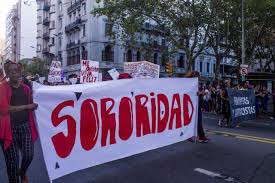
Some sources: Testimonies recovered directly. Case tracking. dh.net/ reports No. 107 on social isolation (responsible Véronique Van Espen ) / Croix rouge/ Guide social : isolement-social-et-suicide / ‘alternative’ reports on the Istanbul convention, and D. Geldorf.Superdiversiteit. Beck. De Neuvenmesung der Ungleichheit under den Mensen SV. Velasco-Yáñez, D. (2017). Women Zapatistas and the Guadalajara Gender Struggles, Jalisco: ITESO. Among others.
